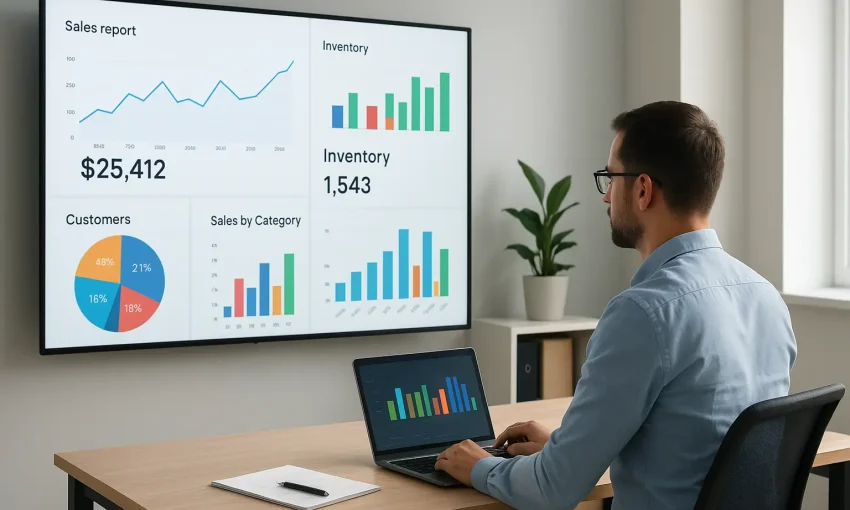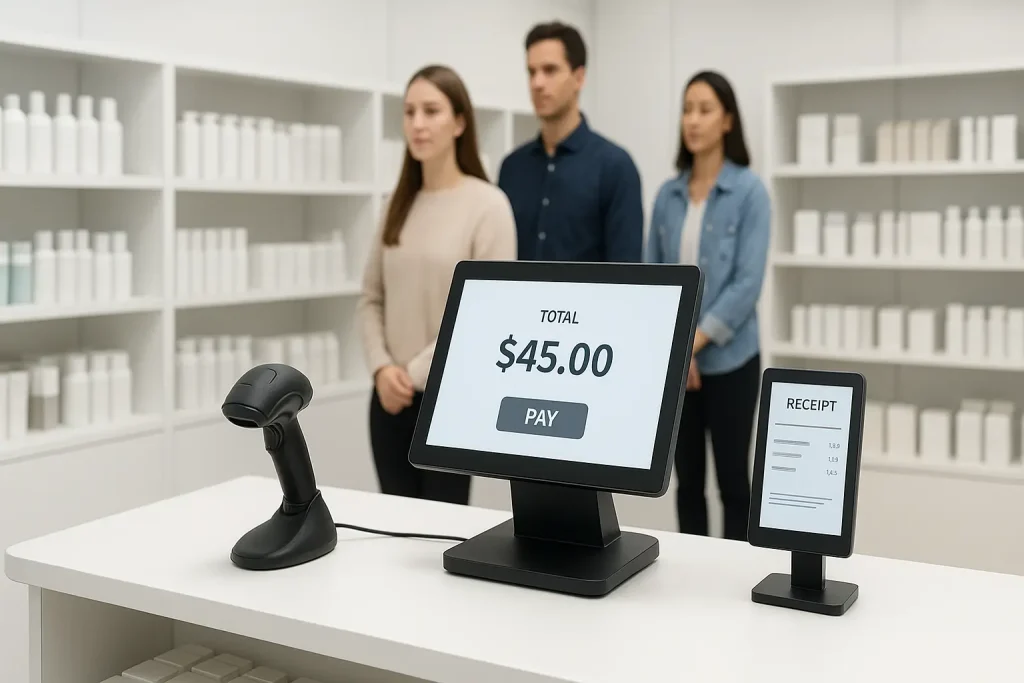
In today’s competitive business landscape, selecting the right Point of Sale (POS) software can make the difference between streamlined operations and daily frustrations. Whether you’re running a retail store, restaurant, or service-based business, the right POS system serves as the backbone of your daily operations, managing everything from inventory to customer relationships.
Understanding POS Software: More Than Just Payment Processing
Modern POS software has evolved far beyond simple transaction processing. Today’s systems integrate inventory management, customer relationship management, employee scheduling, analytics, and even marketing tools into one comprehensive platform. This evolution makes choosing the right system both more important and more complex than ever before.
The best POS software acts as a central hub for your business operations, connecting various aspects of your business to provide real-time insights and streamline processes. When integrated with ERP solutions like SellCare, businesses can achieve unprecedented levels of operational efficiency and data visibility across their entire enterprise.
Key Features to Consider When Choosing POS Software
Inventory Management Capabilities
Effective inventory management is crucial for any business handling physical products. Look for POS software that offers real-time inventory tracking, automatic stock alerts, and multi-location inventory management if you operate multiple stores. The system should seamlessly track stock levels, automatically update quantities after sales, and provide detailed reports on fast-moving and slow-moving items.
Payment Processing Flexibility
Your POS system should accept various payment methods including credit cards, debit cards, mobile payments, contactless payments, and even cryptocurrency where relevant. Ensure the software supports the payment processors you prefer and offers competitive transaction fees. Integration with popular payment gateways and the ability to process split payments can also be valuable features.
Reporting and Analytics
Comprehensive reporting capabilities allow you to make data-driven decisions. Look for systems that provide sales reports, inventory reports, employee performance metrics, customer analytics, and financial summaries. Advanced analytics features can help identify trends, forecast demand, and optimize pricing strategies.
Customer Management Tools
Built-in customer relationship management (CRM) features enable you to track customer purchase history, preferences, and contact information. This data proves invaluable for creating targeted marketing campaigns, implementing loyalty programs, and providing personalized customer service.

Industry-Specific Requirements
Retail Businesses
Retail establishments need POS software with robust inventory management, barcode scanning capabilities, and support for various product categories and variants. Integration with e-commerce platforms becomes essential for businesses operating both online and offline channels.
Restaurants and Food Service
Restaurant POS systems require features like table management, kitchen display systems, ingredient-level inventory tracking, and modifier management for menu items. The ability to handle split bills, tips, and table transfers is also crucial for smooth restaurant operations.
Service-Based Businesses
Service businesses benefit from POS software that includes appointment scheduling, service tracking, customer history management, and the ability to sell both services and products. Integration with booking systems and calendar applications can streamline operations significantly.
Technical Considerations for POS Software Selection
Cloud-Based vs. On-Premise Solutions
Cloud-based POS systems offer advantages like remote access, automatic updates, and lower upfront costs. However, they require reliable internet connectivity and involve ongoing subscription fees. On-premise solutions provide more control and don’t depend on internet connectivity but require higher initial investments and manual updates.
Integration Capabilities
Your POS software should integrate seamlessly with your existing business tools, including accounting software, e-commerce platforms, marketing tools, and ERP systems. SellCare’s ERP solutions, for instance, can integrate with various POS systems to provide comprehensive business management capabilities.
Scalability and Growth Support
Choose POS software that can grow with your business. Consider whether the system can handle increased transaction volumes, additional users, multiple locations, and expanded product catalogs without performance degradation.
Security and Compliance
Ensure your chosen POS software meets industry security standards, particularly PCI DSS compliance for payment processing. Look for features like end-to-end encryption, secure user authentication, and regular security updates.

Implementation and Training Considerations
Ease of Use and Learning Curve
The best POS software balances powerful features with user-friendly interfaces. Consider the technical expertise of your staff and choose a system that they can learn quickly. Intuitive design and clear navigation reduce training time and minimize operational errors.
Training and Support
Evaluate the vendor’s training programs, documentation quality, and ongoing support options. Reliable customer support becomes crucial during implementation and when issues arise during daily operations.
Data Migration and Setup
Consider how easily you can migrate existing data from your current system to the new POS software. The vendor should provide migration tools or services to transfer customer data, inventory information, and historical transaction records.
Cost Analysis and Budgeting
Understanding Pricing Models
POS software pricing varies significantly based on features, number of users, and transaction volumes. Some providers charge monthly subscriptions per terminal, while others use transaction-based pricing. Factor in all costs including hardware, software licenses, payment processing fees, and ongoing support.
Total Cost of Ownership
Look beyond initial costs to understand the total cost of ownership. Consider ongoing subscription fees, transaction charges, support costs, upgrade expenses, and potential customization requirements. Sometimes, higher upfront costs result in lower long-term expenses.
Return on Investment
Calculate the potential ROI by considering efficiency gains, reduced errors, improved inventory management, and enhanced customer insights. The right POS system often pays for itself through improved operations and increased sales.
Making Your Final Decision
Start by clearly defining your business requirements and creating a shortlist of POS software options that meet your essential criteria. Request demos from top contenders and involve key staff members in the evaluation process. Consider running pilot programs with your top choices to test real-world performance.
Remember that choosing POS software is a significant business decision that will impact daily operations for years to come. Take time to thoroughly evaluate options, and don’t hesitate to seek advice from business technology consultants or integrate with comprehensive ERP solutions like SellCare for maximum operational efficiency.
The right POS software becomes an investment in your business’s future, enabling growth, improving customer satisfaction, and providing the data insights needed to make informed business decisions. Choose wisely, and your POS system will serve as a powerful tool for business success.




